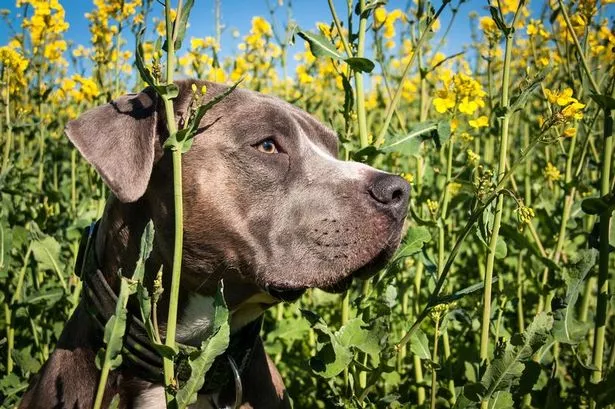Rapeseed, also known as oilseed rape, is a bright-yellow flowering member of the family Brassicaceae (mustard or cabbage family), cultivated mainly for its oil-rich seed.
While it may seem harmless, rapeseed can pose a significant threat to our furry friends, particularly dogs. As a responsible pet owner, it’s essential to understand the potential risks associated with rapeseed consumption in dogs.
Is Rapeseed Bad For Dogs?
The short answer is yes, rapeseed can be harmful to dogs. The seed contains a compound called glucosinolate, which is responsible for its pungent flavor and aroma. When ingested, glucosinolate can cause a range of adverse effects in dogs, from mild discomfort to life-threatening complications.
Why is Rapeseed Toxic to Dogs?
The toxic compound in rapeseed, glucosinolate, is a potent irritant that can cause damage to a dog’s digestive system. When a dog consumes rapeseed, the glucosinolate is broken down into a compound called allyl isothiocyanate, which is responsible for the characteristic bitter taste and smell. This compound can cause a range of symptoms, including:
- Nausea and vomiting
- Diarrhea
- Abdominal pain
- Increased salivation
- Respiratory distress
What to Do if Your Dog Eats Rapeseed?
If you suspect your dog has ingested rapeseed, it’s crucial to act quickly. Here are some steps you can take: (See Also: Does Kohl’S Allow Dogs)
- Monitor your dog’s behavior and watch for signs of illness
- Keep an eye on your dog’s stool and vomit to check for signs of blood or other abnormalities
- Contact your veterinarian or a pet poison hotline for guidance
- Seek immediate veterinary attention if your dog shows severe symptoms or appears to be in distress
In conclusion, rapeseed can be harmful to dogs due to the toxic compound glucosinolate. As a responsible pet owner, it’s essential to be aware of the potential risks and take steps to prevent your dog from ingesting rapeseed.
If you suspect your dog has eaten rapeseed, act quickly and seek professional advice to ensure your furry friend receives the necessary treatment.

FAQs: Is Rapeseed Bad For Dogs?
What is rapeseed, and is it safe for my dog to eat?
Rapeseed, also known as oilseed rape, is a bright-yellow flowering member of the family Brassicaceae (mustard or cabbage family), cultivated mainly for its oil-rich seed. While rapeseed is generally considered safe for humans to consume, it’s essential to exercise caution when it comes to dogs. Rapeseed contains compounds that can be toxic to dogs, so it’s recommended to keep it out of reach of your furry friend.
Can I give my dog rapeseed oil as a supplement?
It’s not recommended to give your dog rapeseed oil as a supplement. While some people use rapeseed oil as a natural remedy for various health issues, it’s not a suitable substitute for a balanced dog diet. Rapeseed oil is high in erucic acid, which can cause harm to your dog’s health if consumed in large quantities. Instead, consult with your veterinarian about the best supplements for your dog’s specific needs.
What are the signs of rapeseed toxicity in dogs?
If your dog ingests rapeseed, it may exhibit signs of toxicity, including vomiting, diarrhea, lethargy, and abdominal pain. In severe cases, rapeseed toxicity can lead to more serious health issues, such as kidney damage and even death. If you suspect your dog has ingested rapeseed, it’s crucial to seek veterinary attention immediately.
How can I prevent my dog from getting into rapeseed?
To keep your dog safe, it’s essential to store rapeseed products, such as oil and seeds, in a secure location that’s inaccessible to your pet. Make sure to clean up any spills immediately and avoid leaving food or snacks containing rapeseed unattended. Additionally, be mindful of your surroundings when working with rapeseed in your garden or yard, as the seeds can be easily scattered and ingested by dogs.
What should I do if my dog has already ingested rapeseed?
If you suspect your dog has ingested rapeseed, it’s crucial to act quickly. Contact your veterinarian or a pet poison hotline for guidance on what to do next. In some cases, your veterinarian may recommend inducing vomiting or administering activated charcoal to help remove the toxin from your dog’s system. In severe cases, hospitalization may be necessary to treat the symptoms and prevent complications.
